In the realm of ecological exploration, a visionary theory known as the Gaia Hypothesis has captured the imagination of scientists and thinkers alike. Coined by the brilliant mind of James Lovelock, this groundbreaking concept delves into the interconnectedness of Earth’s living systems, presenting a paradigm shift in our understanding of the planet as a self-regulating organism. Join us on a journey through the essence of Gaia, as we unravel the intricate tapestry of nature’s delicate balance and the profound implications it holds for our world.
Table of Contents
- Exploring the Gaia Hypothesis by James Lovelock
- Unveiling the Intriguing Concepts Behind the Gaia Hypothesis
- Analyzing the Implications of James Lovelock’s Gaia Hypothesis
- Embracing Sustainable Practices in Light of the Gaia Hypothesis
- Q&A
- Closing Remarks
Exploring the Gaia Hypothesis by James Lovelock
In the intricate web of interconnectedness that is our planet Earth, the Gaia Hypothesis by James Lovelock shines as a beacon of understanding and wonder. This hypothesis proposes that the Earth is a self-regulating system, much like a living organism, where the biota and the environment interact to maintain conditions suitable for life. This fascinating concept challenges us to view our planet not just as a collection of separate entities but as a unified, self-sustaining whole.
Key points to explore in the Gaia Hypothesis:
- Homeostasis: The idea that Earth regulates its internal environment to maintain conditions necessary for life.
- Interconnectedness: How living organisms and the environment are intricately linked in a complex system.
- Feedback mechanisms: Understanding how feedback loops help keep the Earth’s systems in balance.
- Implications: Exploring the implications of viewing Earth as a single, self-regulating entity.
Delve deeper into the Gaia Hypothesis with James Lovelock’s groundbreaking work and uncover the profound insights it offers into the dynamic relationship between life and our planet.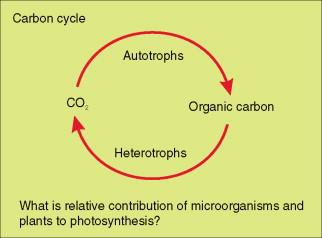
Unveiling the Intriguing Concepts Behind the Gaia Hypothesis
Explore the captivating world of the Gaia Hypothesis, a revolutionary concept that delves into the interconnectedness of our planet’s ecosystems. Originating from the brilliant mind of James Lovelock, this theory proposes that Earth functions as a single, self-regulating organism. Imagine Earth as a living entity, constantly adapting to maintain optimal conditions for life.
Discover the thought-provoking idea that Earth itself is alive, with all living organisms forming part of a complex, intertwined system. From the depths of the oceans to the vastness of the atmosphere, each component plays a crucial role in maintaining the delicate balance of our planet. **Experience** the wonder of Gaia Hypothesis and ponder the profound implications it carries for our understanding of the natural world.

Analyzing the Implications of James Lovelock’s Gaia Hypothesis
James Lovelock’s Gaia Hypothesis poses profound implications for our understanding of Earth as a self-regulating system, challenging traditional views of the planet’s ecosystems and their interactions. By viewing the Earth as a single, self-sustaining organism, Lovelock’s theory shifts the paradigm of how we perceive the intricate web of life on our planet.
<p>Through the Gaia Hypothesis, Lovelock invites us to contemplate the interconnectedness of all living and non-living entities that shape Earth's environment. This holistic approach emphasizes the delicate balance required for the planet to maintain stability and thrive. It prompts us to reconsider our role as stewards of this vast, interconnected system, urging us to act responsibly to preserve the delicate equilibrium that sustains life on Earth.</p>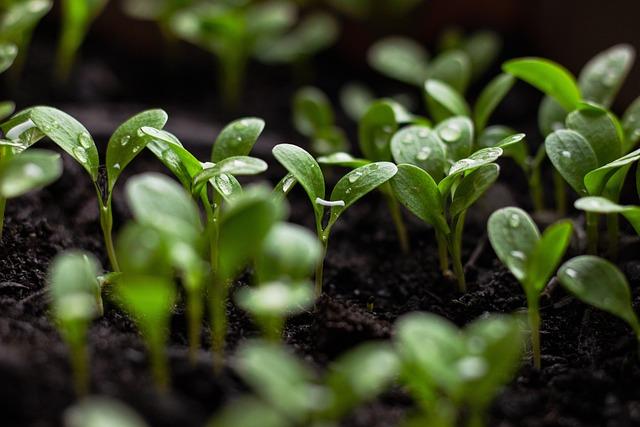
Embracing Sustainable Practices in Light of the Gaia Hypothesis
A fresh perspective on sustainability emerges when juxtaposed against the backdrop of the Gaia Hypothesis. This revolutionary concept proposed by James Lovelock suggests that the Earth operates as a single, self-regulating organism. Embracing this viewpoint can inspire us to treat our planet with the same care and respect we would extend to a living being.
<p>By integrating sustainable practices into our daily lives, we not only reduce our environmental footprint but also contribute to the well-being of the Earth as a whole. Simple actions such as recycling, conserving energy, and supporting eco-friendly initiatives can collectively make a significant impact on preserving the delicate balance of Gaia, fostering a harmonious relationship between humanity and our planet.</p>Q&A
**Q&A: Exploring the Gaia Hypothesis with James Lovelock**
Q: What is the Gaia Hypothesis proposed by James Lovelock?
A: The Gaia Hypothesis, formulated by James Lovelock in the 1970s, suggests that the Earth functions as a self-regulating organism with living organisms and inorganic material interacting to maintain conditions suitable for life.
Q: What inspired James Lovelock to develop the Gaia Hypothesis?
A: Lovelock, a renowned environmentalist and scientist, was inspired by the idea of viewing Earth as a unified, self-regulating system akin to a living organism, harnessing complex feedback mechanisms to sustain life.
Q: How does the Gaia Hypothesis relate to the field of ecology?
A: The Gaia Hypothesis challenges conventional ecological theories by proposing that the Earth itself behaves like a living entity, emphasizing the interconnectedness of all components of the biosphere.
Q: What are some criticisms of the Gaia Hypothesis?
A: Critics argue that the notion of Earth as a self-regulating system could be seen as teleological, attributing purpose or intention to natural processes, which goes against traditional scientific explanations.
Q: How has the Gaia Hypothesis influenced environmental and sustainability movements?
A: The Gaia Hypothesis has sparked discussions on holistic approaches to environmental management and sustainability, emphasizing the importance of understanding Earth as a complex, interconnected system that requires collective stewardship.
Q: What are some key implications of the Gaia Hypothesis for our understanding of planetary health?
A: By recognizing Earth as a dynamic, self-regulating system, the Gaia Hypothesis underscores the need for responsible environmental practices and underscores the interconnectedness of all life forms in maintaining the planet’s equilibrium.
Closing Remarks
In conclusion, James Lovelock’s Gaia hypothesis presents a thought-provoking perspective on the interconnectedness of our planet and all its living systems. By viewing Earth as a self-regulating organism, Lovelock challenges us to consider the intricate balance and harmony that exist within the biosphere. Whether one fully embraces the Gaia hypothesis or not, it undoubtedly sparks a sense of awe and wonder about the beauty and complexity of our world. As we continue to explore the depths of our relationship with the Earth, let us remember to tread lightly and respect the delicate dance of life that surrounds us. Embracing the spirit of curiosity and stewardship, we can aspire to nurture and protect this unique and precious home we all share.
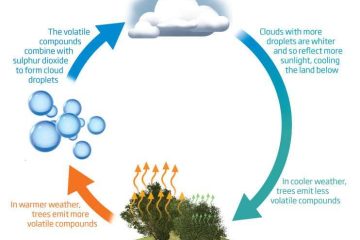
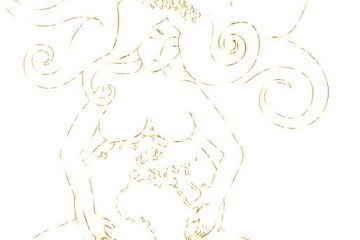
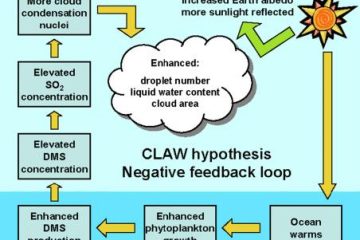
0 Comments